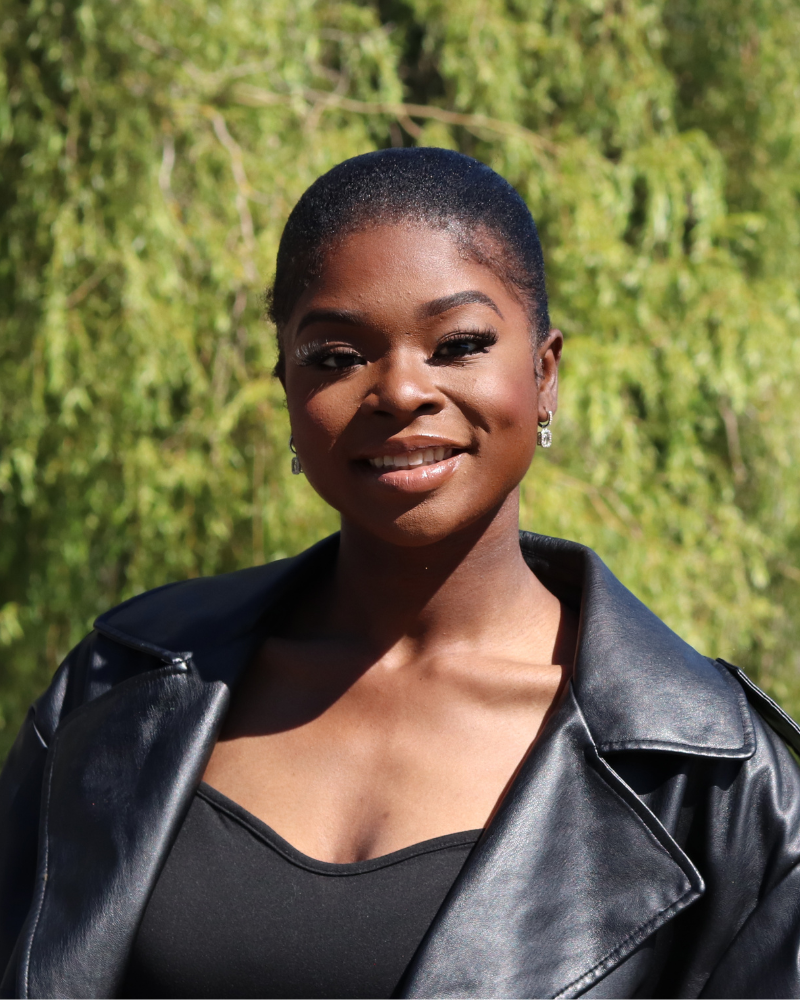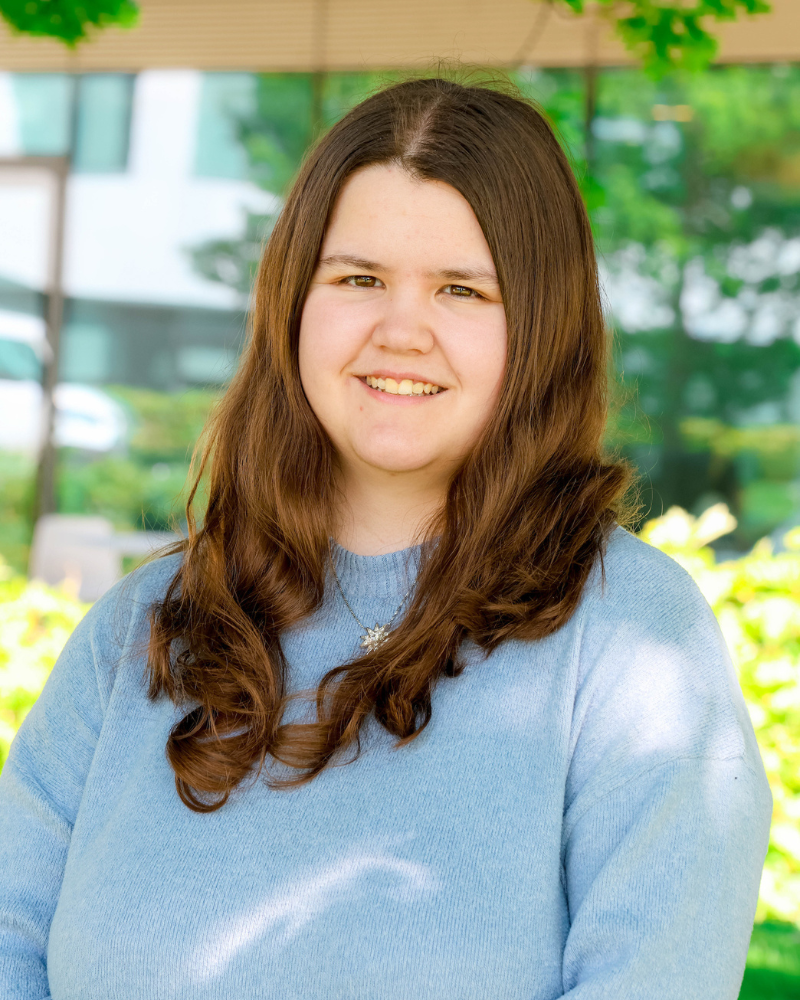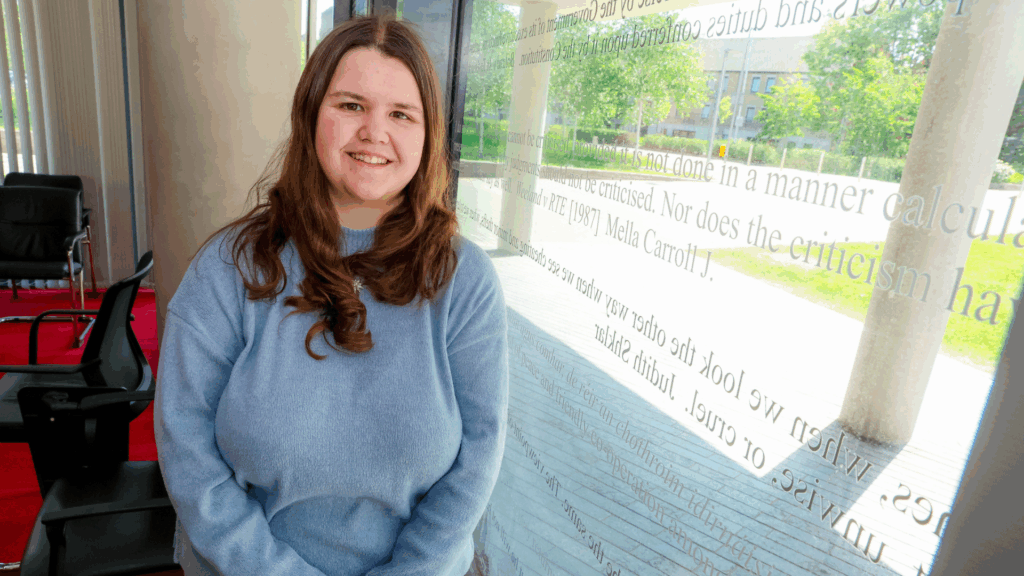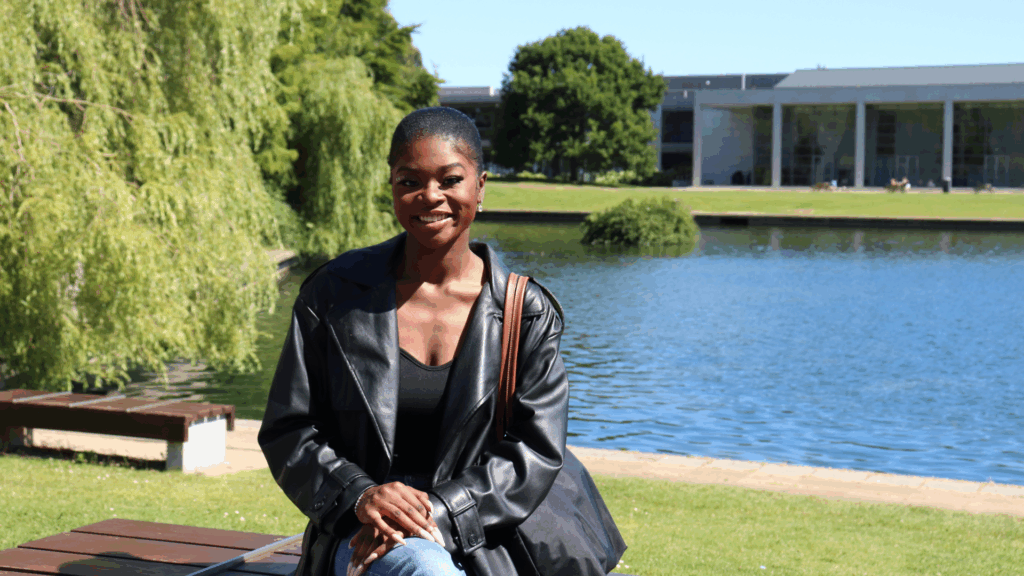Generation Access - UCD
Bénédicte Luzemba studying Politics, International Relations and French at UCD
Bénédicte accessed college through the HEAR scheme

My journey to college was shaped by encouragement and belief. I was fortunate to have supportive parents who valued education and always reminded me that I was capable of achieving anything I set my mind to.
What has university life been like for you so far?
Studying this course has challenged me in the best way. It’s pushed me to think critically about the world, explore different perspectives, and see education as a tool for change. There have definitely been times where managing deadlines and staying motivated was tough, but remembering why I was here allowed me to stay focused.
Have you faced any specific challenges as an access student during your time in college?
Balancing part-time work with a full academic workload was challenging, but staying organised helped me focus.
Where do you see yourself after completing your degree?
I will pursue a master’s in International Relations, while possibly teaching French, combining my love for language and education. I aspire to work in spaces like diplomacy and education policy, and engaging with forums like the United Nations. Wherever I go, I want to represent and uplift underrepresented voices, especially young women and girls. At the same time, I plan to continue building my work as an advocate and public speaker, using every opportunity, from classrooms to international stages to lead with purpose.
If you could give your 16 year old self-some advice on applying to higher education, what would you want them to know?
I’d tell her: don’t be modest about your ambitions. You’re allowed to aim high and unapologetically. Don’t shrink your dreams to make them more acceptable or realistic. Believe that you can take up space, because you were never meant to play small.
Aisling Maloney, studied Law with Politics at UCD
Aisling accessed college through the HEAR scheme

Accessing college was both exciting and challenging. Coming from a working-class background, I didn’t have family who could guide me through the process. I’m a first-generation student, so everything from the CAO to SUSI was completely new and confusing.
It took persistence and a lot of asking questions, but in the end, getting accepted into UCD and starting college felt like a huge achievement. I knew education was one of the few ways I could change my circumstances, and getting accepted into UCD felt like breaking through an invisible wall.
What has university life been like for you so far?
Academically, university has pushed me in ways which I didn’t expect. The workload can be intense, and there have been moments where I’ve doubted whether I’m good enough to be here, but I’ve learned to ask for help, use the support services and trust that I do belong.
Socially, it’s been a bit of a mixed experience. At first, I felt out of place and as if the people around me came from completely different worlds. It took a while to find friends who understood where I was coming from, but once I did, things got easier.
If you could give your 16 year old self-some advice on applying to higher education, what would you want them to know?
I’d tell my 16-year-old self not to let fear or doubt get in the way. You might not see many people around you going to university, and it might feel like it’s not meant for someone like you, but it is.
Where do you see yourself after completing your degree?
After completing my degree, I see myself building a career that not only reflects my interests but also creates real change, especially for people who come from backgrounds like mine. I want to use everything I’ve learned both in and out of the classroom to make a difference, whether that’s in law, social justice or politics.


